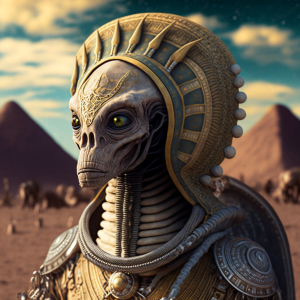Zecharia Sitchin was a Russian-American author and ancient mysteries researcher whose books from the 1970’s and 1980’s drew attention to ancient Sumerian writings, which he believed to offer evidence of extra-terrestrial visitors. His most famous book is The 12th Planet, in which he argued that the Sumerians knew of a 12th planet beyond Pluto—which he referred to as Nibiru.
Sitchin’s books attempt to explain what he believed were Earth’s prehistory and ancient history by combining scientific evidence with the religious beliefs of many civilizations. He claimed that many aspects of human evolution, technology and culture—including genetic engineering, warfare and other advancements—came from advanced races who visited Earth long ago. He also argued that some Biblical figures should be interpreted as actual people who encountered advanced aliens or their genetically engineered hybrids.
Sitchin also proposed that these visitors left behind records in cuneiform narrative accounts, wherein stories about humanity’s creation are usually attributed to sky gods who lived in Sumerian cities after helping create mankind from clay. He claims this suggests there were interactions between Sumerians and extra-terrestrial beings who travelled from planets such as Nibiru.
In addition to “The 12th Planet”, Sitchin wrote seven other books involving similar themes, including: “The Stairway to Heaven,” “The Wars of Gods and Men,” “The Lost Realms” ,”When Time Began,” “The Cosmic Code,” “Genesis Revisited” ,and his last work before his death in 2010, “There Were Giants Upon the Earth.”
Overview of Zecharia Sitchin's Work
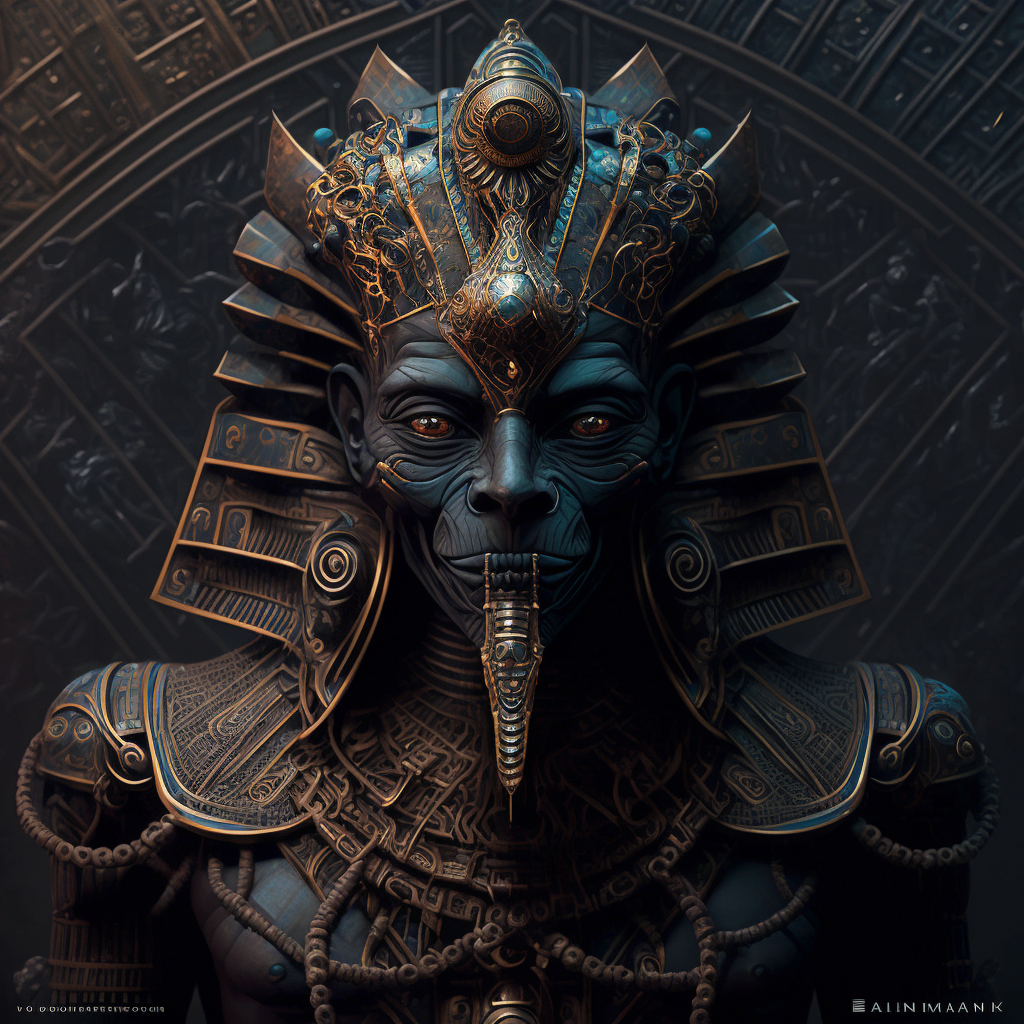
Zecharia Sitchin was a Russian-American author and researcher into ancient mystery religions and occult topics. His work focused on a particular interpretation of biblical history and ancient mythology, as filtered through the Sumerian Mesopotamian accounts.
He argued that ancient myths are actual historical events that have been passed down from generation to generation. He drew upon astrology and numerology to form his own interpretations of these stories in an effort to uncover hidden truths about our past.
Sitchin’s most famous piece of work is The 12th Planet, published in 1976, which presented the thesis that humanity was created by an extraterrestrial race known as the Annunaki for use as slave labor.
In it he outlines his ideas about how these alien gods were responsible for creating us as well as teaching us how to build civilization, and how they set up astrological symbols in the sky, giving us a template to follow during our time here on earth.
This book led him to become one of present day’s most noted conspiracy theorists with devoted followers who are inspired by his thought-provoking theories.
He has written several other books such as The Stairway to Heaven, The Wars of Gods and Men, When Time Began:The First New Age, andGenesis Revisited: Is Modern Science Catching Up With Ancient Wisdom? Sitchin has theorized about a variety of topics including ancient astronauts interacting with early humans across the world; evidence showcasing an extraterrestrial intrusion where aliens left their mark on modern understanding; additional existence beyond Earth; various references to advanced technologies found in biblical texts; new interpretations for mythology throughout antiquity; guidance for finding consciousness through religion; profound insights about past civilizations;and more creative speculation concerning vast networks of gods interconnected with man around the universe.
Summaries of Notable Books
Zecharia Sitchin’s books explore ancient Sumerian texts and evidence that suggest extra-terrestrial intervention in early human history. In The 12th Planet, he talks about the Anunnaki, a species of extraterrestrials from the planet Nibiru who visited Earth and created humans from their own genome.
In Genesis Revisited he discusses other contrary theories on Creationism and Adam & Eve. He has also written about theories about pre-flood civilisations in his book The Lost Realms. He further expounds on his belief that certain Mythology gods such as Enlil, Ninurta and Marduk were actually Nibiru’s extraterrestrial inhabitants visiting planet Earth.
Many of his books look closely at evidence found in Age Old Texts from Ancient Mesopotamia and discuss why ancient peoples might have seen them as gods.
He argued that advanced technology mentioned in these texts could only be attributed to alien visitors, not early humans. All of Sitchin’s works deal with a radical reinterpretation of human history through an extraterrestrial perspective.
Themes
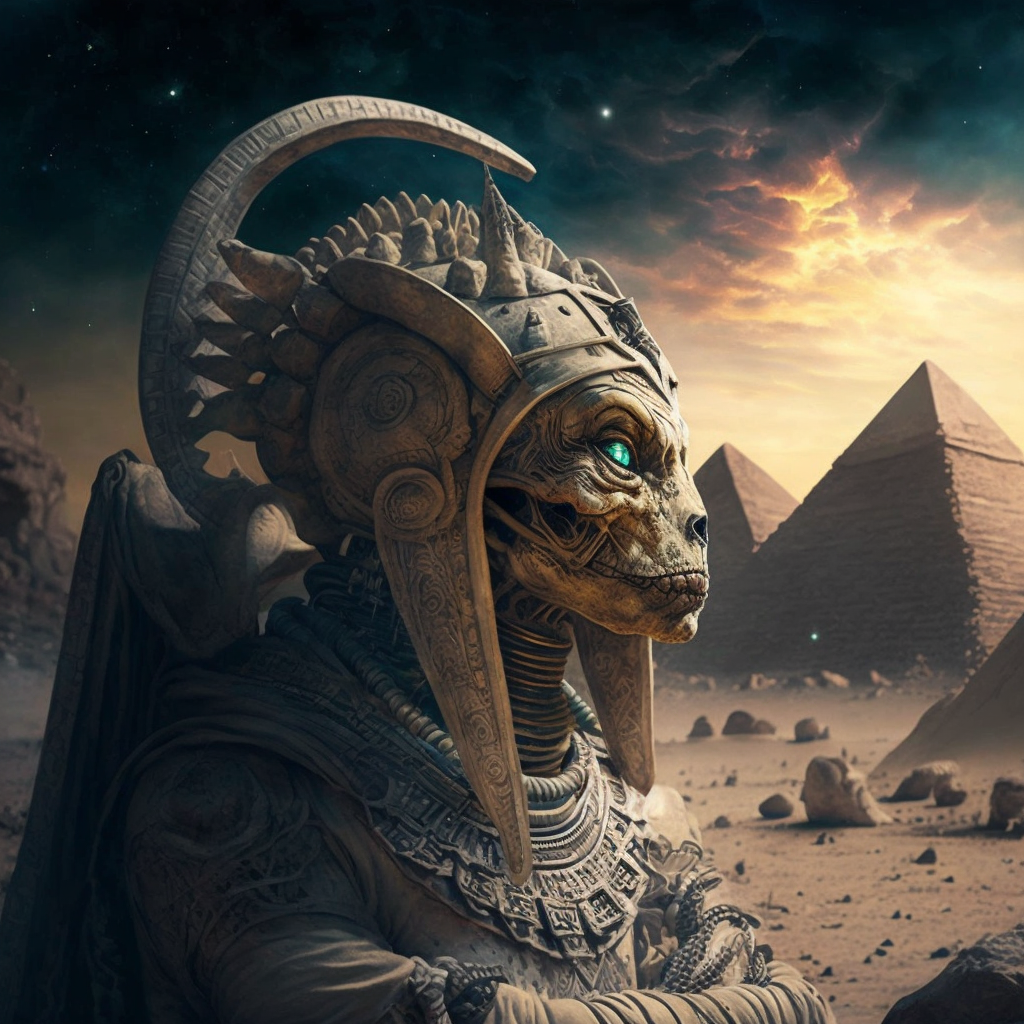
Zecharia Sitchin’s books are primarily focused on his Ancient Astronaut Theory. This theory states that ancient civilizations had contact with intelligent extraterrestrial beings referred to as “gods” or “masters of heaven”.
He argues that these gods were actually advanced double-planetary races from a far off planet called Nibiru, who were searching for minerals and raw materials on Earth. His books contain detailed interpretations of ancient Sumerian, Akkadian and Babylonian texts which he believes support his theories.
The interpretation of the tablets is controversial because it implies that humans did not evolve naturally but were instead engineered by extra-terrestrials. Other themes explored in Sitchin’s works include prophecies and interpretations of ancient texts, analysis of archaeological evidence, and exploration of geology, biology and astronomy.
Influence of Sitchin's Work
The books written by Zecharia Sitchin are based on the ancient texts, myths and artifacts discovered from civilizations such as Sumer, Akkad and Babylon. He combines the knowledge found in these ancient texts with scientific evidence, to provide evidence of an ancient advanced civilization.
The main themes uncovered from his work are that a race of extraterrestrial beings known as the Anunnaki descended to Earth thousands of years ago, created a homo sapien-like species using genetic engineering and taught them about culture, technology, astronomy and various other aspects of life.
He also discusses that this same race left evidence of their presence in other artifacts from around the world.
Sitchin’s books have been met with skepticism by some members of the scientific community. However, there is broad acceptance among many people who believe that ancient civilizations were much more technologically advanced than what was previously believed possible.
Additionally, recent archaeological discoveries have validated some of his theories which has increased the credibility amongst those who look at history through different eyes.
Over time Sitchin’s books have brought awareness to concepts such as divine intervention in addressing matters related to humanity’s development and its subsequent evolution.
Responses to Sitchin's Work
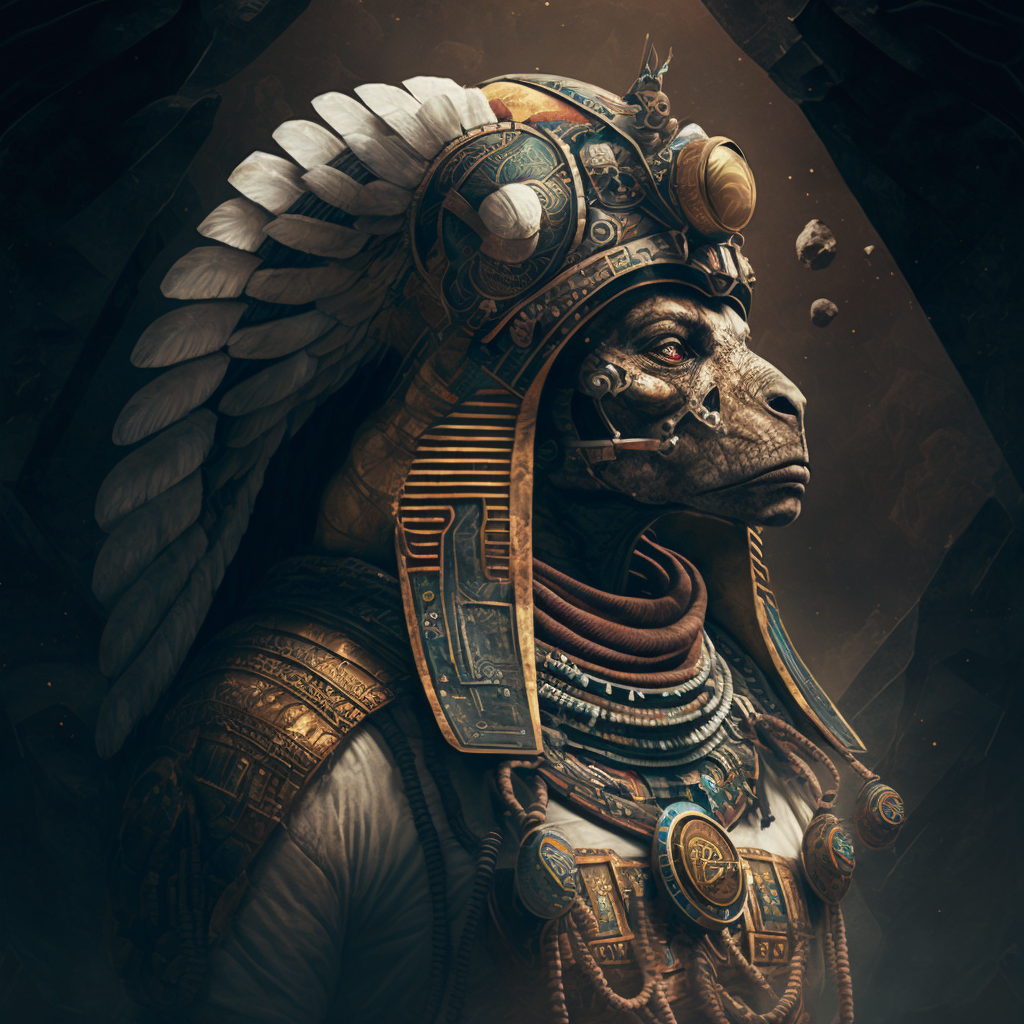
Zecharia Sitchin’s books are primarily about the ancient Sumerian civilization, as well as its history and mythology.
His writings suggest that extraterrestrial forces visited the Earth in antiquity, and had a major impact on human culture and technological development. He has written several books about this topic such as The 12th Planet, which discusses his theory of an extra-terrestrial race called Anunnaki influencing human development;
The Lost Book of Enki, describing the origins and rise of Sumerian civilization; The Wars of Gods and Men discussing the interplanetary wars between Gods in Sumerian Epics; The Stairway to Heaven makes connections between Ancient Mesopotamian religion, modern religions, occult conspiracies, and science; andthere is also There Were Giants Upon the Earth examining evidence of prehistoric events featuring giants.
Sitchin’s works have received a mixed response from various communities. Academics have generally dismissed his theories due to lack of archaeological evidence while conspiracy theorists have embraced them since they appeal to people’s fascination with mysterious ancient civilizations.
Fiction writers have been inspired by his works giving rise to several novels based on his theories such as Robert Ferrigno’s Prayers For the Assassin and Michael Comptons’ Seventh Son series.
Criticisms of Sitchin's Work
Zecharia Sitchin’s books are about his interpretation of evidence from ancient civilizations that suggest an alien presence on Earth in the distant past. His theories have raised some questions and criticism as they are not supported by mainstream science.
Specifically, this includes skepticism about traditional interpretations of archaeological discoveries, ancient documents, myths and other supporting historical evidence.
Supporters of Sitchin’s theories suggest that he is revealing a suppressed or unexplored truth about history that goes beyond conventional explanations for certain phenomena.
Many areas covered by Sitchin’s work include the idea of aliens or advanced beings visiting our planet in early history, how these extraterrestrial visitors influenced human evolution and civilization building, as well as their role in developing advanced technologies like space travel and communication systems that predate modern scientific discoveries.
Additionally, Sitchin also delves into religious beliefs from many major cultures around the world to explain why they worshiped gods who were said to have created humanity.
Conclusion
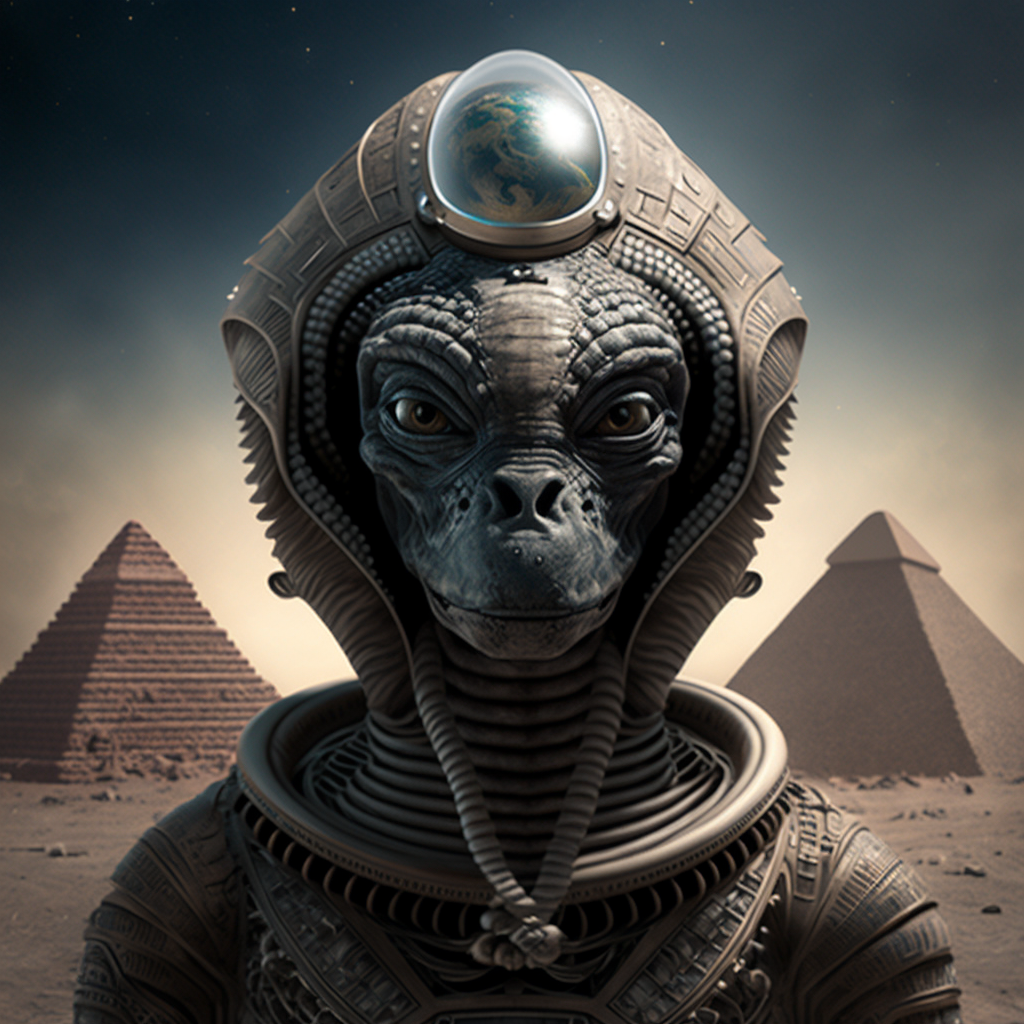
Zecharia Sitchin’s books are largely focused on what he refers to as the Ancient Astronaut Hypothesis. This is a belief that aliens from outer space visited in antiquity and had a major influence on the development of human civilizations.
His books, which include The 12th Planet, Genesis Revisited, and Divine Encounters, discuss evidence of extraterrestrial contact and the impact it has had on humanity’s past and current circumstances.
Sitchin argues that Sumerian texts describing gods who lived in the heavens could be interpreted as descriptions of visited aliens. He believes this is proof of ancient astronauts visiting Earth in past times. These books explore how these ancient astronauts influenced human evolution, religion, and culture around the world.
In addition to his discussion of alien visitors, Sitchin also makes many controversial statements about various aspects of history such as fossil evidence for humans existing millions of years ago and highly advanced beings existing before recorded history began.
This connection between aliens and human evolution has sparked debate among scientists and theologians alike – with both sides offering their own interpretations and theories based upon the evidence presented by Sitchin’s works.
Through his research into what he calls “forgotten worlds,” Sitchin has provided an inventive perspective into our collective past that continues to be one of great interest for those seeking answers to our world’s mysteries.

